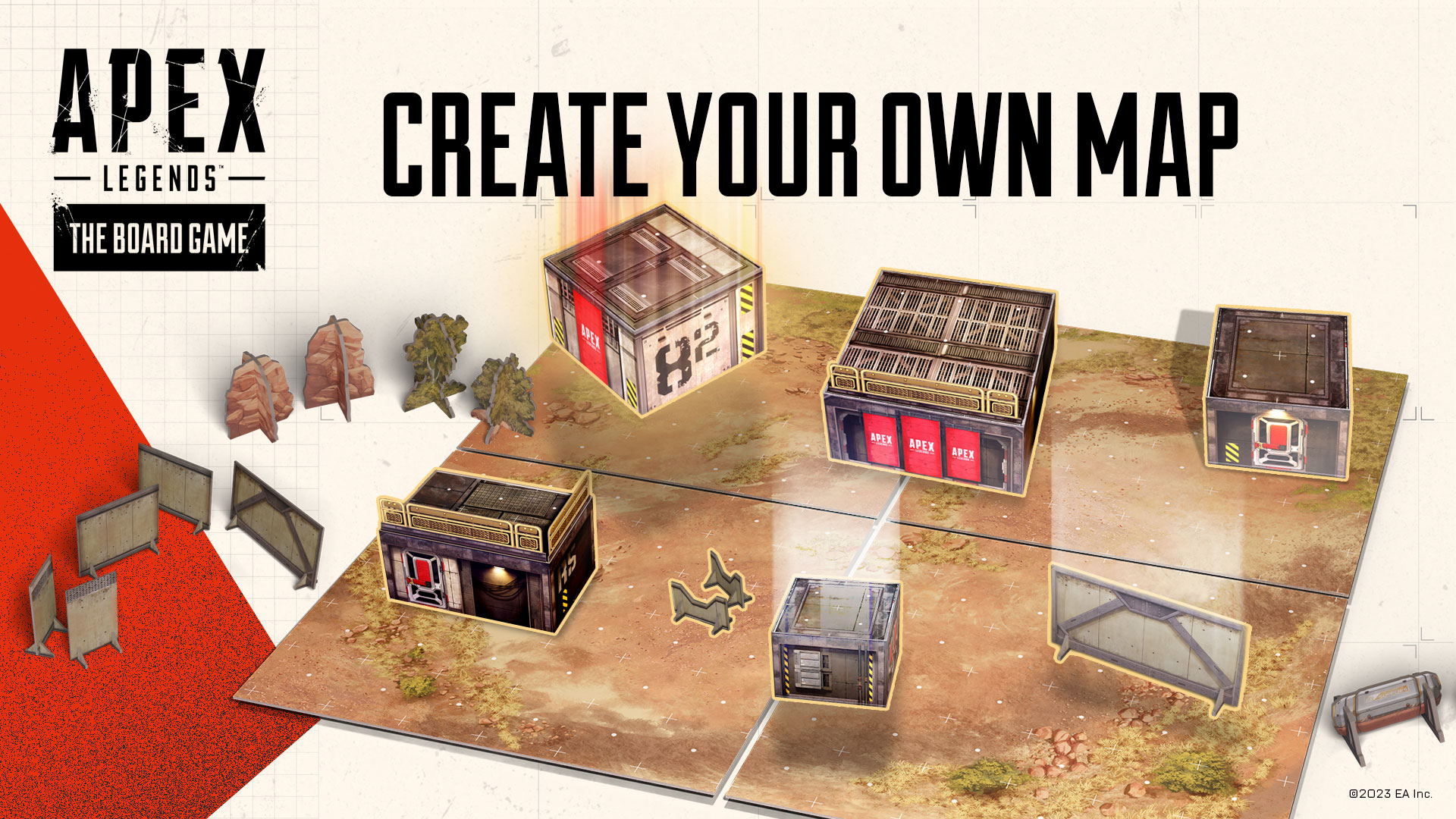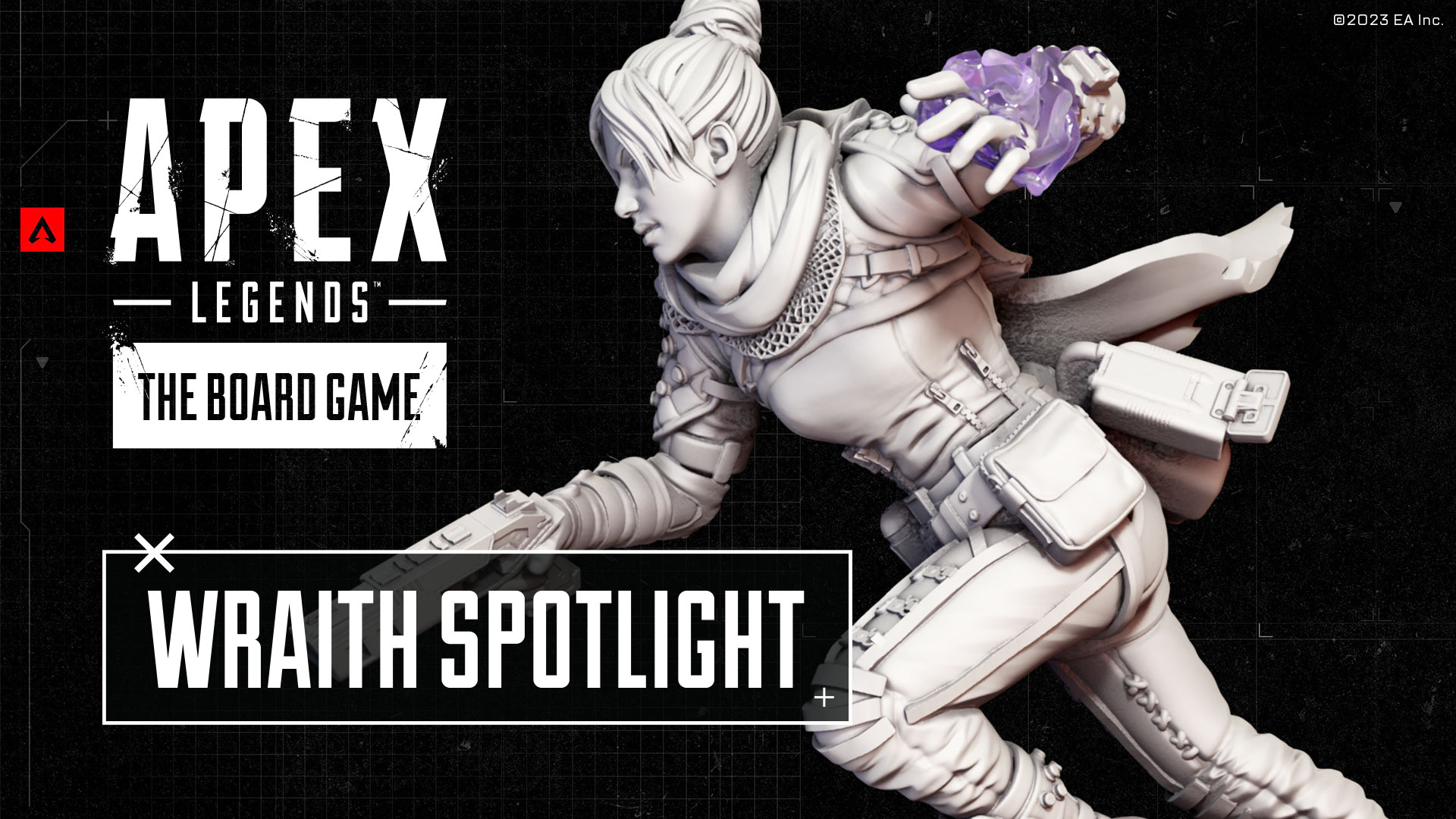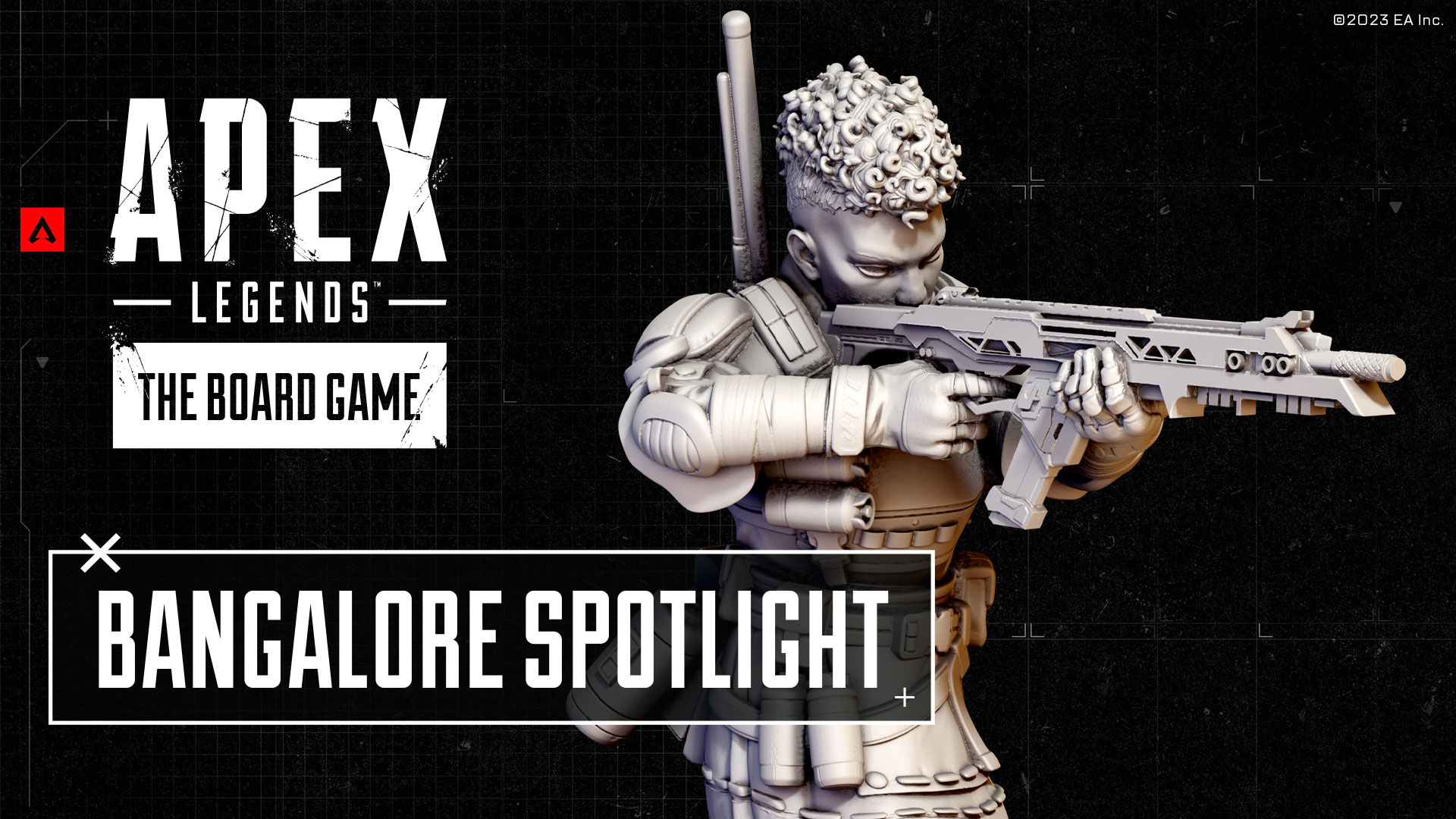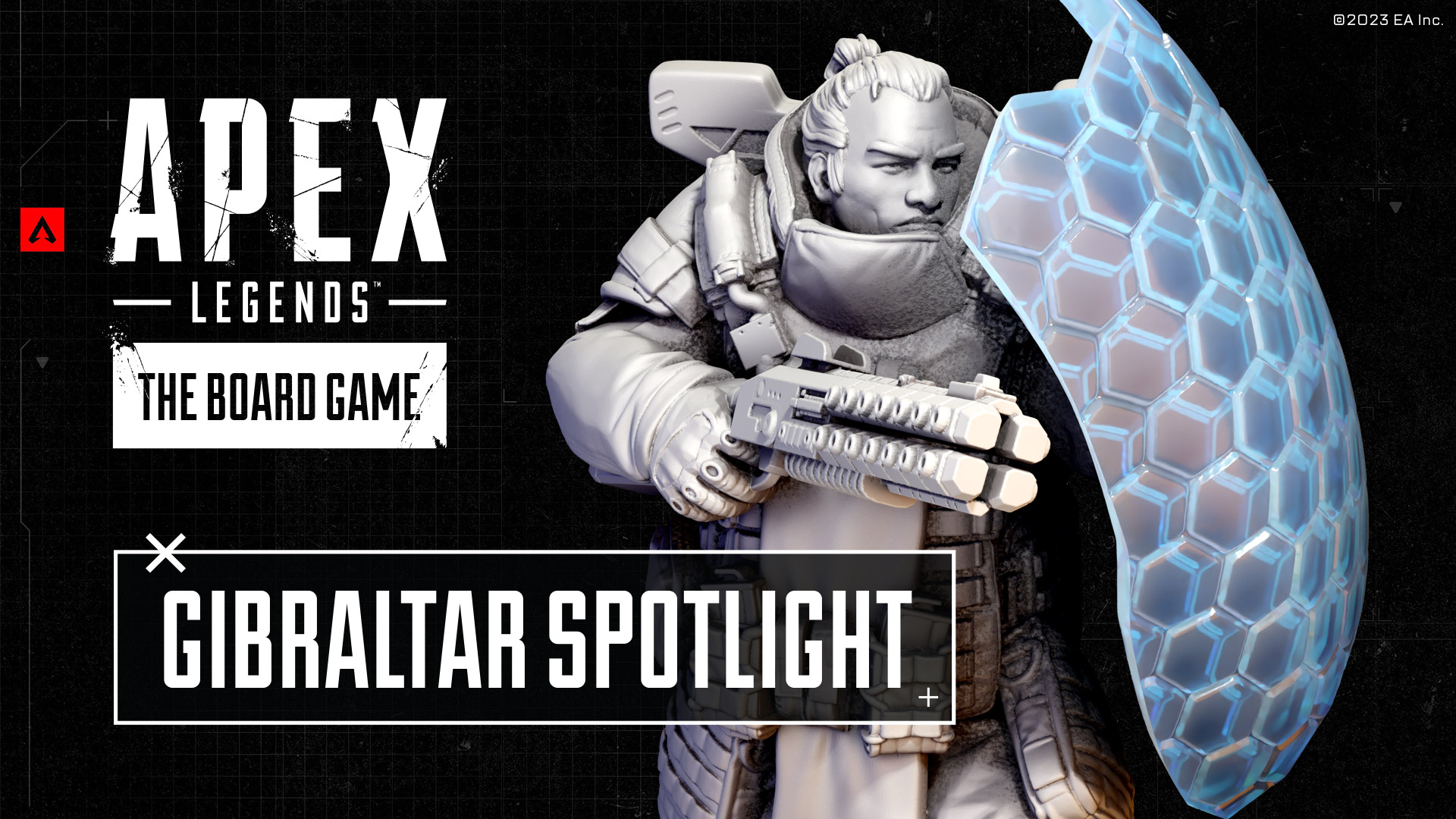Our Love Letter to Apex Legends™—how it all began
Hey Legends!
Every great game, every ambitious and monumental project involves people, and this endeavor is no different. My name is Jakub, I’m the CEO of Glass Cannon Unplugged, and today I would like to introduce you to four brilliant men whose minds and hard work are the foundations of Apex Legends™: The Board Game.
Jakub:
Let’s begin with Thanos and Michael, since they’re the ones who started it all. What is it that you did to get us to where we are now?
Thanos:
It was 6 years ago that Michael and I met for the first time. I had just moved from Greece to Cyprus, having finished my career as a professional musician and, as a motivation to meet and start engaging with the locals, I sought the local board gaming community. Turns out there were none in Larnaca, where I currently live, so I went on to blindly invite people I found on a Facebook group to a cafeteria, looking forward to hobby board games and chit-chat. Michael was one of them.
Michael:
I’m not much of a companion when it comes to chit-chat but board games are right up my alley. Thanos made sure we stayed in touch after the few game sessions we had, in the weirdest way possible—he hired me.
Jakub:
It certainly was a good call. Thanos, you are the founder of Fantasia Games, a successful board game publisher and author/developer of quite a few titles. Tell us what sparked the creation of the first prototype for Apex Legends™: The Board Game?
Thanos:
A lot of things contributed to the game becoming a reality. Meeting Michał Ozon, GCU’s COO was definitely one of them, but more on that later.
I was, and still am, a huge FPS fan. My online gaming group was cycling through a lot of different games at the time, until we stumbled upon Apex Legends™. We instantly got hooked. The combination of the adrenaline-driven tension and outplay moments of the FPS genre, and the calming, almost soothing sensation of opening a loot crate mixed with the (mostly) chill vibes of traveling between locations typical for the battle royale genre was perfect for us old geezers.
Sadly (or perhaps fortunately) I was the weakest player in my group, and in a spirit of friendship and rivalry some in my group kept making little remarks on my performance. They knew about my love for board games and someone suggested that if I ever wanted to be a pro at this game, I should design a board game version. Guess I took the joke too literally.
Jakub: Michael, how did you get “dragged” into this?
Michael: Once I was enthralled by Thanos’ design there was but one way forward—to design the game alongside him.
I wasn’t familiar with Apex Legends™ at that time, but just hearing Thanos talk about it with such passion and conviction made me curious. I was intrigued by the concept of an elevated battleground as the arena for the Legends and the focus on their game-altering abilities. What also impressed me was the vast variety of weapons, attachments and ammo types which enhance the unique nature of each combatant. No two rounds I ever witnessed neither felt nor played out the same!
Jakub: So what were the foundations that the two of you have built upon? What were the first things that came to mind when you sat and thought about a board game based on Apex Legends™?
Thanos & Michael: We’ve spent countless hours in-game, and once we knew where we were going, we began reassessing the mechanics and key points of the game. Early on in the design, we analyzed what made Apex Legends™… well—Apex Legends™. Here is what we came up with:
– We believe that the player avatar has to feel like a Legend, and not a nameless character like in other battle royale games. We knew from the onset that this should be a key aspect of the board game.
– We consider looting, be it weapons, weapon attachments or even just ammo, to be the most exciting aspect of the game. Not because it guarantees a win, but because the moment you loot an attachment, your brain begins to analyze all the new possibilities, and run all kinds of tests in an attempt to find the best fit. Once the endorphins run wild there is a surge of “WE CAN DO IT” moments at the sight of orange. This element was the most important to do correctly, and—probably not coincidentally—the one we had the most fun designing.
– Although snappy decisions and quick reflexes make or break a computer game of this genre, we felt that any attempt to implement the “real time” aspect would not be optimal for the tabletop version. Reflexes provide uncertainty, and that is what makes combat in FPS exciting. Will I execute the tactics well or will I fumble? The greatest way to simulate such gameplay emotions in a board game is by making combat always feel uncertain. There are paths players can take to maximize their chances, akin to playing the video game, but, at the end of the day, the rules behind things like recoil pattern need to be unambiguous.
– While choosing the path to the final circle is not always up to the players, they sometimes welcome a chance to take a detour in order to find some possibly game-winning loot prior to a decisive encounter. Although the game undoubtedly peaks in that last fight between the remaining teams, this shouldn’t eclipse the rest of the experience. That final fight should be to the player as Ithaca is to Odysseus. It’s not the ultimate destination—it’s the crates we loot along the way.
Jakub: Before we let the GCU devs take the stage I would ask you to quickly tell the story behind the origins of our cooperation.
Thanos: It was 2019 A.D., or -1 BC (Before Covid), and we decided to attend our first Essen Spiel trade fair. We took our prototype with us, intending to find a publisher to see the game developed and published.
We met with many people but none treated us nor understood us as well as Michał Ozon, the COO at Glass Cannon Unplugged. He shared with us his company’s exciting vision, and convinced us that they had a great plan for our design. The rest is history. Apex Legends™ is what it is today thanks to the work of the amazing people at GCU.
Jakub: Thank you Thanos, thanks Michael. Let’s make use of your segue to introduce Rafał Pieczynski and Grzegorz Przytarski, the dynamic duo that jumped into this project directly after having finished developing and playtesting Frostpunk: The Board Game.
Rafał: Hello.
Grzegorz: Hi!
Jakub: The developers of a game are equally as important as the authors—this is known by people in this industry. I am sure that Thanos—especially now that he is also publishing board games—will agree, having seen it from both sides.
Thanos: Oh, yes! This cannot be stressed enough.
Jakub: Rafał, how would you best describe to the readers what it is that people like you and Grzesiek actually do?
Rafał: The best reference that comes to mind is that of jewel makers. They get an unpolished diamond and when they are finished they get a diamond that is neatly cut —sometimes even several ones. We begin our work on a prototype which is already playable, but the difference between playable and enjoyable, or accurate, is often measured in months or even years of work.
Grzegorz: With Apex Legends™: The Board Game we had a framework and base mechanics from Thanos and Michael—a testament to their passion and knowledge of the video game. We jumped into this together and with weekly iterations worked our way through the design. Almost two years later we have a modular system that captures the spirit of Apex Legends™ and is a board game we’d love to have on our tables.
Jakub: What was the biggest challenge of this project?
Rafał: Not only was but certainly still is. The greatest challenge is to come up with abilities for Legends that capture what they’re capable of in the video game and to translate that into the language of a tabletop game. The Legends are what makes Apex Legends™ so recognizable and unique—there’s a reason they’re in the title. And while it is challenging, it is also my absolute favorite part of this whole project. With over twenty Legends already available and surely more coming up in the next few years we plan to include twelve of them in the initial release of the board game. But we certainly intend to catch up with the digital game at some point!
Grzegorz: I totally agree with Rafał—balancing the Legends and finding ways in which they can either support or counteract each other (depending on the team-up) is extremely satisfying.
Jakub: Who is the target player for Apex Legends™: The Board Game? Whom did you have in mind as you were developing it?
Rafał: We assumed that a lot of newcomers to the hobby will emerge from the video game’s tremendous playerbase—people who might not have had contact with modern board games nor skirmish wargames. We were also aware that Apex Legends™ is a very tactical game and that its players will expect its tabletop equivalent to provide a comparable level of depth. With unique Legends, 3D buildings as well as diverse playmodes and setups, the players can count on each playthrough offering a unique experience.
Grzegorz: Also, since we instantly recognized the game’s potential regarding tournament and organized play, we knew we would be addressing this game to competitive players, not only allowing them to fully embrace it as participants but in numerous ways help us to keep it alive and kicking. We have very ambitious goals when it comes to how many of the breathtaking locations and thrilling experiences from the video game we will be able to bring to your tables.
Jakub: Stay tuned for more exciting news on Apex Legends™: The Board Game! Thank you so much, gentlemen, for all the information and great stories!
